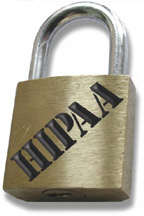 Omnibus Final Rule and Stakeholder Considerations
Omnibus Final Rule and Stakeholder Considerations
The HIPAA Omnibus final rule enhances a patient’s privacy protections, provides individuals new rights to their personal health information, and strengthens the government’s ability to enforce the law. The HIPAA Omnibus final rule implements, among other things, a number of provisions from the HITECH Act. In reality, the Omnibus final rule is really four rules in one:
1. Omnibus final rule makes modifications to the HIPAA Privacy, Security, and Enforcement Rules mandated by the Health Information Technology for Economic and Clinical Health (HITECH) Act, and certain other modifications to improve the Rules, which were issued as a proposed rule on July 14, 2010. These modifications:
- Make business associates of covered entities directly liable for compliance with certain of the HIPAA Privacy and Security Rules’ requirements.
- Strengthen the limitations on the use and disclosure of protected health information for marketing and fundraising purposes, and prohibit the sale of protected health information without individual authorization.
- Expand individuals’ rights to receive electronic copies of their health information and to restrict disclosures to a health plan concerning treatment for which the individual has paid out of pocket in full.
- Require modifications to, and redistribution of, a covered entity’s notice of privacy practices.
- Modify the individual authorization and other requirements to facilitate research and disclosure of child immunization proof to schools, and to enable access to decedent information by family members or others.
- Adopt the additional HITECH Act enhancements to the Enforcement Rule not previously adopted in the October 30, 2009, interim final rule (referenced immediately below), such as the provisions addressing enforcement of noncompliance with the HIPAA Rules due to willful neglect.
2. Omnibus final rule adopting changes to the HIPAA Enforcement Rule to incorporate the increased and tiered civil money penalty structure provided by the HITECH Act, originally published as an interim final rule on October 30, 2009.
3. Omnibus final rule on Breach Notification for Unsecured Protected Health Information under the HITECH Act, which replaces the breach notification rule’s “harm” threshold with a more objective standard and supplants an interim final rule published on August 24, 2009.
4. Omnibus final rule modifying the HIPAA Privacy Rule as required by the Genetic Information Nondiscrimination Act (GINA) to prohibit most health plans from using or disclosing genetic information for underwriting purposes, which was published as a proposed rule on October 7, 2009.
Just ahead of the September 23, 2013 deadline for Omnibus compliance, the Deloitte Center for Health Solutions has released an update to a brief originally published in 2011. Update: Privacy and security of protected health information Omnibus Final Rule and stakeholder considerations looks at the following key issues:
- How healthcare system changes are increasing the complexity of safeguarding PHI
- Provides details on the the four key security and privacy provisions in the Omnibus Final Rule that warrant stakeholder attention
- Looks at the potential economic and reputational damage that may arise for providers lacking appropriate HIPAA security and privacy controls
- Reviews the sue of a Security and Privacy Maturity Model to help organizations assess potential capability gaps, define their security and privacy vision and needs and develop appropriate remediation programs.
The report also provides a clear distinction on how privacy and security differ:
Privacy: The HIPAA Privacy Rule (2003) states that information in any form – oral, paper, or electronic – that relates to a specific individual is protected health information, or PHI.I,II Under this rule, PHI may be shared with appropriate parties in the course of providing or receiving payment for health care. PHI also may be used to protect the public health and well-being, as in
cases of research or legal proceedings.Security: The Security Rule of HIPAA (2003)III operationalizes the Privacy Rule. It requires that covered entities (defined as health plans, health care clearing houses, and health care providers who electronically transmit health care information connected with a transaction) ensure confidentiality, integrity and availability of all electronic PHI; that they anticipate information security threats, both intentional and unintentional; and that they ensure workforce compliance. With the HIPAA Omnibus Final Rule (2013), business associates (such as contractors or sub-contractors and defined as anyone who performs on behalf of a covered entity and is involved in the use or disclosure of individually identifiable health information such as claims processing, benefit administration, billing, data analysis, and so on) are now subject to these rules.
You can download the PDF of the brief here.
